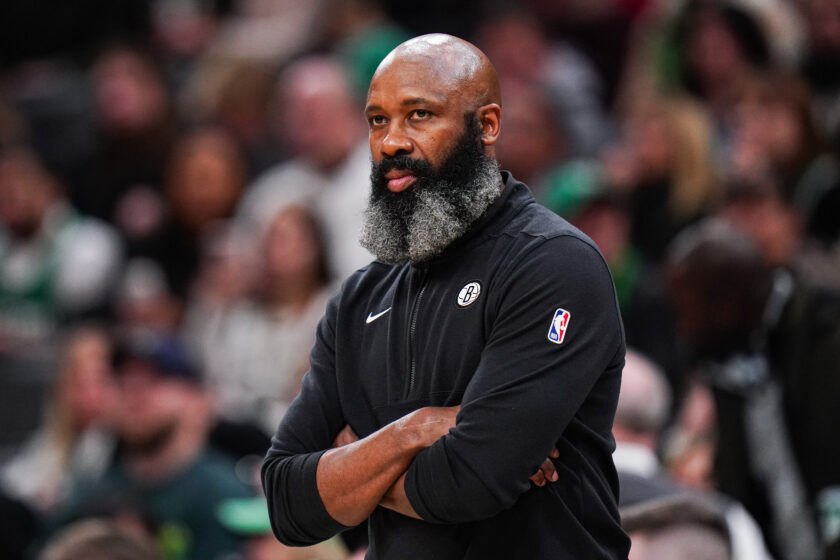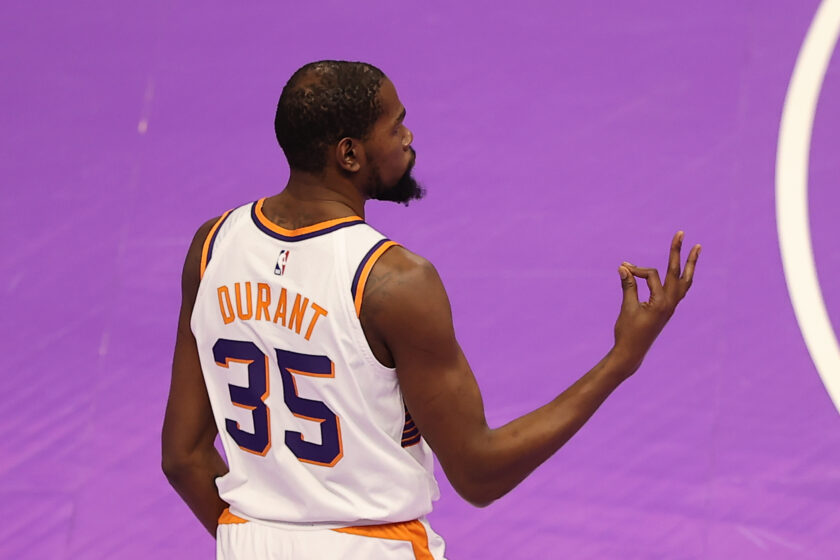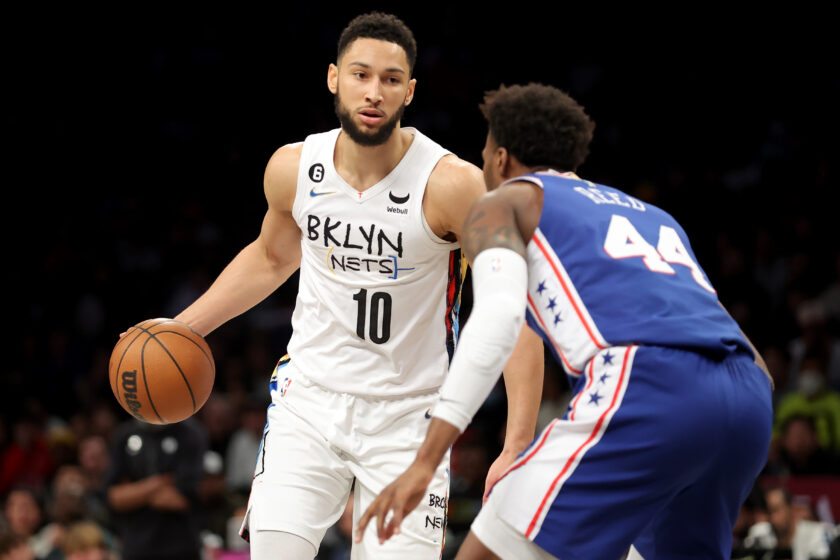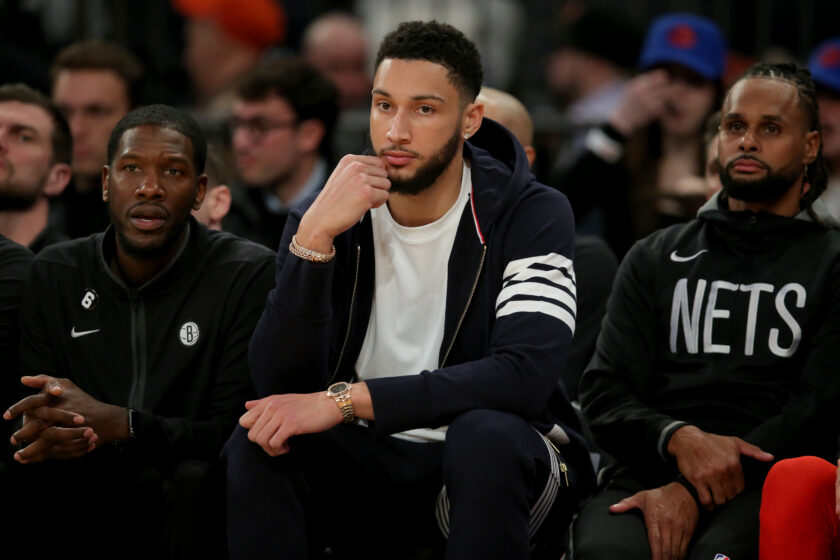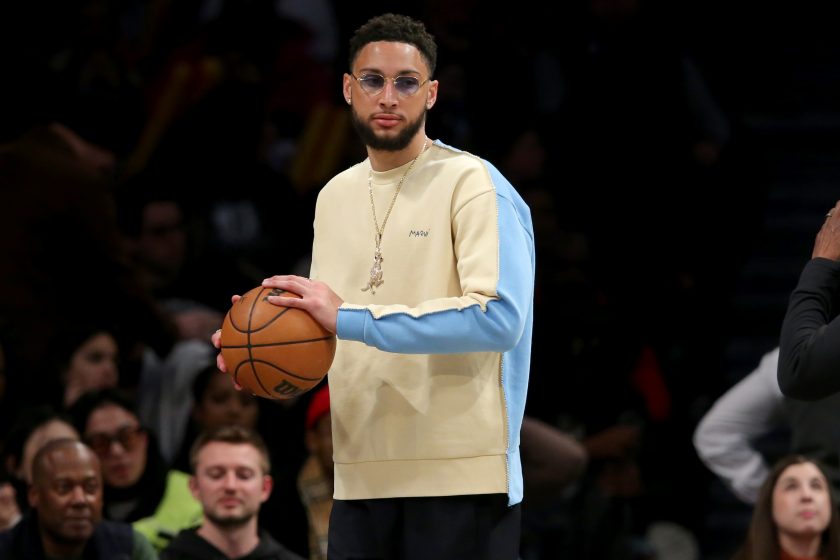Brooklyn Nets NBA All-Star break ESNY roundtable, part 1
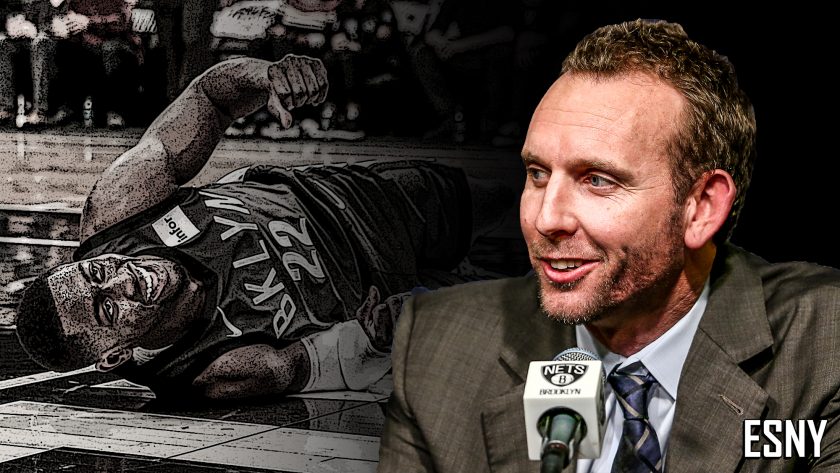
ESNY presents part one of a Brooklyn Nets NBA All-Star break roundtable that focuses heavily on the squad’s current situation.
After surveying some of the popular talking points on Brooklyn Nets’ social media, ESNY decided to put together a roundtable discussion and pose these questions and topics to passionate fans, bloggers, analysts, podcasters and writers. Like any true roundtable, each contributor was given equal opportunity to answer the questions they chose.
In this first installment, we took a deep dive into the following topics: Caris LeVert’s future, Joe Harris’s impending free agency, market values of some Nets players and their true value, potential trade targets and scenarios, the notion of tanking or competing for a title this season and player development.
I would like to thank everyone who participated.
What is Caris LeVert’s role on this team in the future?
Justin Thomas: @J_Thomas_24
@EliteSportsNY, @wblzmedia, @netsrepublic, @SarutobiSports
The Nets have a two to three year window to win a championship, which means there will be moves made to the roster that may be in the best interest of the team and not the fans. Point blank, the only two untouchables on the team are Kyrie Irving and Kevin Durant.
Caris LeVert has been at the forefront of trade scenarios brought on by fans and writers, which would gift the Nets that coveted third star. The future for him boils down to two scenarios. He’s either involved in a package for a third star, possibly a Bradley Beal type, or he’s staying put as a key piece to Brooklyn’s championship endeavors.
Caris has only played in 28 games so far due to a thumb injury early in the season, which sidelined him for over 25 games. Injuries to anybody is never a good thing. But perhaps Kyrie being sidelined the past two weeks has been a mini blessing in disguise for LeVert. With one less offensive threat in the lineup, Brooklyn has turned to LeVert and he has stepped up big time.
Over his last five games, LeVert has shown just the caliber of player he knows he is and what Nets fans know he can be. At 24 ppg, 5.2 APG, 3.8 RPG and just under 2.0 steals per game, LeVert has been the catalyst for a team that’s gone 4-1 since Kyrie went down.
The one stat that leaps off the page is LeVert’s 3-point shooting during this stretch. He’s shooting 50% (13-26) from distance. That number isn’t sustainable, but it does speak to how versatile a scoring threat LeVert can be when he’s on. It’s almost a shame the All-Star break has come when it did as Caris seems to be in the groove right now.
On the season LeVert is averaging 15 points, 3.0 assists and 3.0 rebounds. These are solid numbers for a third option, but consistency is the main issue for him. The key for LeVert is maintaining this recent level of consistency on both ends of the court once Kyrie is reinserted into the lineup. That will be the key to Caris’s future with the team. If he can show that he can not only thrive alongside Irving in the starting rotation but also flourish as a primary ball-handler on the second unit, then I believe his future with the team is secure.
What is Joe Harris’s market value? Was Taurean Prince worth the early contract extension he received? Should the Nets exercise Garrett Temple’s player option for the 2020 season?
Greg Steele: Greek God of Stats, @GreekGodofStats
Author of The Basketball Bible and creator of a new era of NBA statistical analysis at ; writer @hoopshabit, @otgbasketball.
The coming summer will bring the Brooklyn Nets to a decision point regarding one of the cornerstones of their resurgence, Joe Harris. Harris has grown as the Nets grew, establishing himself as a reliable backup and then a starter-level player as the Nets progressed from the lottery, back to the playoffs, to a premiere free-agent destination.
Can the Nets afford to keep Harris? Harris had already reached an expected contract value of $8.6 million per year in 2018-19 and has been nearly as good this year. Using a salary model that is calibrated for the entire league may not provide an accurate answer in this case, however.
The market for Joe Harris is whatever one team is willing to offer him. With Harris’s skillset becoming increasingly valuable in the current NBA, it is easy to see him scoring a big offer sheet.
Using a concept pioneered by Bill James, basketball-reference lists a number of modern sharpshooters among the players with the highest similarity scores for Joe Harris.
Among the 10 most similar to Harris, three have scored big contracts: Jamal Murray, Terry Rozier and Buddy Hield. If Harris gets an offer the size of any of these player’s contracts, the Nets will have a tough choice determining whether or not to break open the wallet.
While it was relatively unsurprising to see the Nets lock-in Caris LeVert and Spencer Dinwiddie on longterm contracts, the same cannot be said for Taurean Prince. I gave the Nets good reviews for acquiring Prince at the cost of a second-round pick over the offseason. His subsequent two-year contract, however, substantially overstates his value.
His career average value thus far is 2.6 wins per season – certainly a solid contributor, but only worth about $4.6 million per season. Paying Prince over $14 million per season suggests that he should worth at least six wins per year—borderline star territory. Based on the contracts recently signed in the NBA, Brooklyn could have acquired more wins with the money.
There were, of course, broader considerations than the bare dollars-to-wins ratio in the inking of Prince’s deal. The Nets were seeking a combo forward who could physically match up with elite wing scorers and perhaps afford Kevin Durant the opportunity to expend less energy on the defensive end when he returns from injury.
There is no debating the rationale behind the move, I simply question the player Brooklyn identified as the best option to fill the role. The issue is not that they overpaid for a middling two-way forward, it’s that they overpaid for the wrong middling two-way forward.
Another decision still left to be made by the Nets is the status of Garrett Temple’s contract next season. Last summer Temple signed a one-plus-one deal for $5 million each season. If Brooklyn picks up the option, they will retain a dependable wing defender and seasoned veteran.
Temple’s shooting touch has failed this year to the tune of a 37.6 FG% and a 50.5 TS%. At 33 years old, such a decline can be the death knell for a players’ career. It remains to be seen whether or not Brooklyn will justify the added expenditure of retaining Temple as necessary to pursue a title next year, but they should be able to replace his current level of performance from the minimum contract bargain bin if they do not exercise the option on his deal.
Who are the top 3 trade targets you can realistically see the Nets targeting and why?
BrooklynsBeat: @brooklynsbeat
NBA fan, Nets diehard. Host of The Culture Nets Podcast, Founder of Brooklyn’s Beat.
1. Bradley Beal
2. Buddy Hield
3. Kelly Oubre
The Nets in Kenny Atkinson’s framework of ballhandlers, wings, and bigs need better wings. Their ballhandlers and Jarrett Allen, with support up front, are good enough to win big, but their wing corps, even with Kevin Durant back, needs improvement. Just look at the Nets’ change in fortunes after David Nwaba’s injury.
To win a title, the Nets likely must go through some combination of LeBron James, Giannis Antetokounmpo, Kawhi Leonard and Paul George, Jimmy Butler, and Jayson Tatum and Jaylen Brown. They must either improve their wing corps to have options to guard these players or add a third star—become so talented at the top of the roster that weaknesses do not matter.
History is kind to three-star teams. Durant can guard great wings in spurts. However, the Nets should not make him their lead defender coming off a ruptured Achilles.
Beal fits the bill for a third star. He’s not a great defender, but a big three of Durant, Kyrie and Beal could be historically potent offensively. Beal knows how to play off a lead ballhandler as he did it with John Wall for years.
The Nets would lose depth to bring him in, but free agents would clamor to be here. They could also (somewhat) compensate for those losses with their cap exceptions during free agency. Hield and Oubre would fit very well.
Hield is an excellent off-ball shooter and scorer, who is a competent defender within the team concept. Oubre is an excellent two-way wing who would fit well offensively around the Nets’ stars and give them a lift in guarding the league’s elite wings.
Any package would require LeVert or Dinwiddie, perhaps picks and salary filler (more in Beal’s case). The Nets should be aggressive. In today’s volatile climate of stars constantly leaving teams (even when they say they will not), and Durant and Kyrie able to test free agency on July 1, 2022, the Nets must go all-in on winning a title before then.
Are the Nets better off not making the playoffs so they can secure a first-round draft pick?
Jake Gould: @nets_jets
Absolutely not, for a plethora of reasons. Let’s start with what would happen should Sean Marks decide to cut the cord on this season, tanking to get the first-rounder back from Atlanta (they since traded it to Minnesota).
The Nets would be looking at a pick that would most likely be somewhere between 9-14, in an already weak draft. After a quick scan of Bleacher Report’s latest mock draft, I see no players available in the back half of the lottery that would fit Brooklyn’s timeline; namely, a polished player that could immediately contribute as a 3-and-D wing on a team that aims to contend for a championship next season.
Additionally, tanking would be uncharacteristic of the heralded “Marksinson” culture, which has defined the Nets as a team that has consistently competed, played hard and fetched the best out of their developed players.
Tanking would require cutting minutes for players that need to hone their skills and be evaluated as able to play with and contend for a ring for with Durant and Irving next year, such as Jarrett Allen, Caris LeVert, Joe Harris and Taurean Prince.
Additionally, cutting these players minutes could hurt their trade value in the off-season, as I suspect two of those four (along with other players and picks) will be dealt for a third star. It is also too late in the season for the Nets to decide to tank, as the trade deadline has passed; if they wanted to tank, they should have sold off pieces with value at the deadline for picks, such as impending free agent Joe Harris or veteran guard Garrett Temple, who would have appealed to contending teams.
Tanking this year could also hurt the Nets next year in two ways. First, tanking would discourage veterans from signing with Brooklyn in the offseason. The Nets will only have the MLE and minimums available to sign free agents, and high-IQ role players who are ring chasing in their 30s would not be likely to sign with the Nets if they do not believe this team is hungry and ready to compete now.
Players like Serge Ibaka, Paul Millsap and Jeff Teague will be more likely to sign with Brooklyn (if prompted by Durant and Irving’s whispers), if they watch the Nets play hard and show potential in a tough, six or seven-game first-round loss, or a deeper playoff run.
Secondly, tanking might insult Irving, potentially damaging his relationship with the front office. After signing with his hometown team in the offseason with one of his best friends, he started the season with career-high numbers, only to get severely injured three weeks later, missing nearly 30 games as he contemplated season-ending surgery.
However, he returned stronger than ever, putting up amazing numbers and highlight reels only to get injured again, return again, lose one of his role models in Kobe Bryant and get injured a third time. Can you imagine how upset he would be to return from injury for a third time this season, only to hear that the front office has decided to cut the cord on the season wasting another season of his prime?
Ultimately, it is simply not worth cutting the cord on this season with less than 30 games remaining, especially while there is still a possibility of Durant returning. Ever since the clock struck six on June 30, 2019, and it was announced that Durant, Irving and DeAndre Jordan would be signing with the Nets, I believed Durant would be back at the end of this season due to the fact that Achilles’ injuries take an average 8-9 months to fully heal and his injury was to his non-dominant leg.
However, when Kyrie was contemplating season-ending shoulder surgery in late November, the lowest point of the season for the Nets, my hopes for Durant’s return wavered. if Irving was out for the season, I did not believe that Durant would return without him.
Now that Irving is expected to return for the rest of the season, I believe we will see Durant return sometime in the next six weeks. He will likely be on a minutes restriction and rest on back to back games, but he should be at full health for the playoffs, allowing the Nets to compete for a championship this year.
I expect him to be the same player on offense capable of scoring 25 points per game without breaking a sweat. I hope that Atkinson and the Nets’ system will limit his workload on defense, allowing him to conserve his energy for offense.
This may be when Atkinson shakes up the rotation, allowing more minutes for Rodions Kurucs and Nic Claxton over defensively challenged players like Harris and Prince. Although, Harris and Prince will be needed for their elite shooting around Durant, so it will be interesting to see Atkinson’s rotations and minutes distribution when Durant returns.
I believe the starting lineup with Durant will be Irving, LeVert, Harris, and Jarrett Allen. This is what I hope to see on March 27, 2020, when the Nets play the Orlando Magic.
[sc name=”clean-sweep-podcast-embed” ]Do you think Dzanan Musa, Rodions Kurucs, and Theo Pinson have regressed? If so, Why?
Andrew: @booskutball
I think there’s a separate answer for each player, but there is something tying them all together I’ll address at the end.
I’ll begin with Kurucs because, in the light of Prince’s inefficiency, he is someone I believe deserves rotation minutes. Nonetheless, I would say Rodions Kurucs has regressed but it’s not all his fault.
At the beginning of the year, Kurucs was distracted by off-court events in his personal life. The loss of confidence was visible in the Latvian and it didn’t help that every time he drove the ball he was called for traveling violations.
Despite that, Kurucs came back after his court date and started to show flashes of his old self. Something that isn’t talked about enough is his attitude on defense. It didn’t matter who Kurucs guarded, he would be up in their ear, talking trash, and playing mind games with them.
The Nets really need someone like that to be getting regular minutes, even if their offensive numbers have the possibility of being lackluster.
In terms of Musa and Pinson, I have to say they’ve stayed stagnated. From the garbage time minutes Musa has been getting recently we can see he’s worked on finishing at the rim but that’s about all we can observe.
Pinson, on the other hand, hasn’t shown me anything that tells me he is an NBA caliber player. But they are all still relatively young players. They still have potential, but Brooklyn may not be the team they will reach it on.
Pertaining more to Kurucs’ future, but also the future of all young, underutilized, inefficient players on the Nets, I think Atkinson is too hesitant in critiquing young talent. Prince has been for the most part terrible, but Atkinson will not remove him from the starting lineup or even share Prince’s minutes with Kurucs.
My solution to this situation would be to keep Prince on a shorter leash. Something needs to be done about Prince, but maybe Kurucs can’t be trusted to provide at the offensive level the Nets need either. Rotating Prince and Kurucs could be a solution, when one is slipping up, plug in the other.
This way, the team gets what they need when they need it and Kurucs can finally get time to develop and perhaps show he’s better than Prince.
The same thing happened earlier in the season with Musa and Pinson. Granted, at the time they were mandatory pieces in the second rotation. David Nwaba wasn’t given a steady opportunity until all other options failed.
Atkinson seemed reluctant to make changes despite the production out of Musa, Pinson and Kurucs being far less than ideal, but that’s pure speculation on my part. Atkinson is great at developing talent, the proof is in the product, but the wavering confidence regarding the young talent this year is confusing. One has to wonder why they are so inconsistent.
Perhaps Atkinson doesn’t perceive them as core players or maybe he knows they will be replaced in the upcoming offseason. Whatever the issue is with Kurucs, Musa and Pinson, I hope it’s for the latter reason.
M.S. Education & Psychology
B.S. Family Nutrition & Exercise Science
Former Division II Collegiate Basketball Player for Cuny Queens College
Former Boys & Girls HS Basketball Coach NYC PSAL

